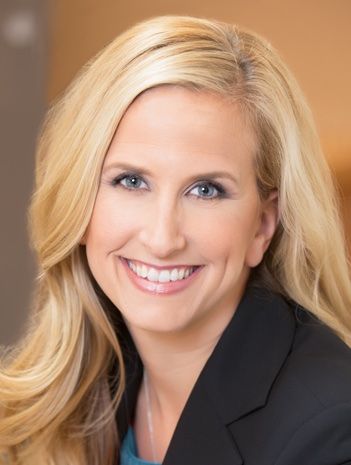- Revenue Cycle Management
- COVID-19
- Reimbursement
- Diabetes Awareness Month
- Risk Management
- Patient Retention
- Staffing
- Medical Economics® 100th Anniversary
- Coding and documentation
- Business of Endocrinology
- Telehealth
- Physicians Financial News
- Cybersecurity
- Cardiovascular Clinical Consult
- Locum Tenens, brought to you by LocumLife®
- Weight Management
- Business of Women's Health
- Practice Efficiency
- Finance and Wealth
- EHRs
- Remote Patient Monitoring
- Sponsored Webinars
- Medical Technology
- Billing and collections
- Acute Pain Management
- Exclusive Content
- Value-based Care
- Business of Pediatrics
- Concierge Medicine 2.0 by Castle Connolly Private Health Partners
- Practice Growth
- Concierge Medicine
- Business of Cardiology
- Implementing the Topcon Ocular Telehealth Platform
- Malpractice
- Influenza
- Sexual Health
- Chronic Conditions
- Technology
- Legal and Policy
- Money
- Opinion
- Vaccines
- Practice Management
- Patient Relations
- Careers
The FTC’s noncompete rule is a concerning development for physicians
The ruling is going to be difficult to interpret and enforce.
© MQ-Illustrations - stock.adobe.com

Yesterday, the Federal Trade Commission (FTC) issued a final rule prohibiting noncompete clauses, significantly impacting physicians across the nation. Voted along party lines, this rule has the potential to supersede state laws and raises legal and practical concerns for doctor contracts and health care practices.
As a health care attorney who exclusively represents physicians and health care practices, I see this rule as a problematic due to the following reasons:
- This rule is a potential overreach of federal authority,
- The exceptions for allowing noncompetes are proving wide open to challenge, and
- This rule creates more of a divide than already exists between hospitals and employed doctors.
Amanda Hill, JD

First, the FTC, without clear congressional backing, claims sweeping jurisdiction over employment contracts traditionally governed by state law. The FTC has clearly determined that noncompetes are an “unfair method of competition” and apparently has taken the position that it can now regulate any activity it deems unfair. Although the U.S. Constitution grants the Congress the authority to regulate matters that affect interstate commerce, it does not grant such authority to one single branch to override state law and create national law on what it feels appropriate. The American Hospital Association criticized the rule, which I agree with, by stating "Congress has not granted [the FTC] the authority to regulate such an extensive portion of the American economy in one fell swoop."
Second, the exceptions provided by the rule are not only vague but could lead to significant legal disputes. For example, the rule spares "senior executives" who meet certain compensation thresholds and role requirements from the ban, yet fails to define these terms precisely, creating more ambiguity. The rule indicates that this is a “small, narrowly defined group.” The rule seems to exclude physicians, but it also says that partners in a business, such as physician members of an independent practice, would “generally qualify as senior executives under the duties prong and have authority to make policy decisions about the business.” It goes on to say: “CEOs and presidents are presumed to be in a policy-making position … and will not be otherwise subject to a job duties test, while highly paid workers in a non-executive role such as many physicians will not.”
The rule does not apply to nonprofits and yet creates confusing layers of challenge by the comments about what is and what is not truly considered a nonprofit for purposes of the rule. Commissioner Rebecca Kelly Slaughter indicated that even if entities register as a non-profit but are in fact organized for the profit of their members, they will fall under the FTC Rule. But one commissioner on the FTC doesn’t get to dictate a national overhaul of entrenched state law, and trying to challenge a group who is legally under a non-profit status as actually for profit to fall under this rule is unreasonable and untenable. And the rule does not apply to noncompetes formed during the bona fide sale of a business (but still cannot spring up in repurchase rights), adding another layer of complexity.
Third, this ban creates more division among an already stretched-thin physician workforce. Hospitals are pushing noncompetes as a protection of their business interests, but Amy Vertrees, MD, general surgeon in Tennessee, strongly disagrees. “Noncompetes hurt us more than help us,” she said. She indicated that in her experience, doctors are not taking trade secrets from a hospital and sharing it with another. “We aren’t stealing the secrets from Apple here. If anything, we bring industry knowledge to the hospital, not the other way around.” She indicated that “we have to protect our own interests, because no one else is going to do it for us.”
Corinne Smith, JD, adjunct professor of health law at Trinity University (and a lawyer with my firm) feels that noncompetes are too one-sided against the physician, causing massive disruption in the physician/patient relationship that doesn’t help this strapped market.“Lawyers don’t have these restrictions,” she said. “It’s causing more of a divide between physicians and their patients, and the detrimental ripple effect it’s having on physicians is wide.”
If we want more doctors to enter the market, we need to reduce barriers, not add them.
Physicians dislike noncompetes from hospitals and large employers
Nisha Mehta, MD, a radiologist, physician advocate, and founder of the grass roots “Physician Side Gigs” community, gathered over 6,000 signatures from physicians to show support for a noncompete ban for hospital employed physicians, arguing that noncompetes in this situation allow hospital systems to have leverage over physicians despite a lack of evidence showing that individual physicians leaving a hospital poses no threat to the financial stability to the institution. This is detrimental to physician career longevity, patients, and our nation’s “long-term ability to maintain access to quality care.”
Similarly, Matt Mazurek, MD, MBA, assistant professor at Yale School of Medicine, criticizes noncompetes in academic medicine, sharing a story of a physician blocked from working due to a noncompete, stating, "noncompetes hold doctors’ hostage in bad situations, reduce access to care, and only serve as another mechanism to exploit physicians."
Reasonable narrowly tailored noncompetes may help protect smaller practices
On the flip side, some argue that noncompetes are essential for business stability in small, privately-owned practices. A pediatric practice owner client of mine in a large city has a very narrowly tailored restriction only 7.5 miles around the practice and it’s proven very helpful for business interests but still has allowed doctors to find work in and around where they live.
The U.S. Chamber of Commerce, which ardently opposes the ban, argued employers are more likely to spend resources developing their workforce if they have some reassurance that their workers won't take that knowledge to a competitor.
The ruling is going to be hard to interpret and enforce
Austin Kaplan, an employment and civil rights lawyer, anticipates significant legal battles. “The U.S. Chamber of Commerce has already stated their intent to challenge the decision and delay or derail its implementation,” he said. Primarily he argues that noncompetes should not be enforced, since he represents mostly individuals, but agrees the legal fights are coming. Allison Bowers, an employment attorney in Austin, Texas, who represents mostly employers, echoes this sentiment. She stated that “we shall soon see whether a court will issue a temporary injunction halting enforcement of the rule pending litigation.”
This new rule by the FTC represents a drastic shift in the landscape of physician employment and contractual agreements that plunges the health care world into more chaos. While intended to free employees from restrictive clauses, it introduces a new realm of legal uncertainty and potential conflicts that may ultimately harm rather than help the very workforce it aims to protect.
There are 120 days after publication of the rule for employers to change course. But it’s most likely that legal challenges will result in a stay of the effective date, and it may be years before it goes into effect. Employers can develop a middle-ground approach where they eliminate noncompetes for everyone except highly paid individuals and wait to see how the courts come down on the exceptions.
In short: the new rule is confusing
Regardless of where doctors fall in this spectrum of whether noncompetes should be allowed, this FTC Rule causes more confusion and legal wrangling than good. Instead of a more measured approach that may have had some real impact, this is an act of overreaching and political posturing. It’s a shame, really, as physicians are working harder under more intense pressure, they are struggling to keep practicing amidst lower reimbursement and increased workload, and they really need actual relief.
This new FTC rule introduces more questions than solutions, suggesting that the road ahead will be fraught with legal disputes and continuing controversy over noncompete clauses in the health care sector.
This is not the solution doctors were hoping for.
Amanda Hill, JD, is a health care attorney based in Austin, Texas, and founder of Guard My Practice, an online video platform for physicians offering 15-minute weekly continuing medical education videos that guide them through complicated subjects with ease, including contract negotiations, fraud and abuse issues, employment conflicts and the basics of setting up a practice.
